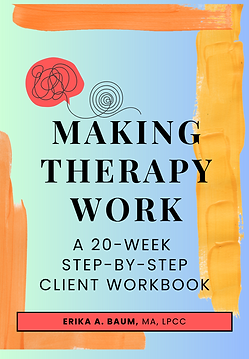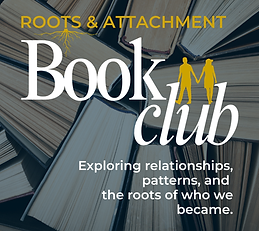
Who I Work With...
The Unseen Helper
-
You’re the person everyone turns to — yet few people truly see you.
-
You’ve learned to hold space for others, but no one ever taught you how to hold space for yourself.
-
You know how to take care of people, but struggle to let anyone take care of you.
-
You feel safest when you’re helping — and most lost when you’re not needed.
The Over-Responsible Adult
-
You were praised for being mature, composed, and self-sufficient — but those traits came at the cost of feeling emotionally known.
-
You feel guilty resting, as if you have to earn permission to relax.
-
You’ve built your life around control — schedules, achievements, emotional regulation — because chaos once meant danger.
-
You’re the calm in every storm, even when you’re breaking inside.
The Emotionally Neglected Child
(Now in an Adult Body)
-
You grew up feeling loved for what you did, not for who you were.
-
Your parents weren’t cruel — just unavailable, distracted, or dismissive.
-
You learned to hide your needs to avoid disappointment or conflict.
-
Now, even in safe relationships, you find it hard to trust that your emotions won’t be “too much.”
The Competent, Exhausted Professional
-
On paper, you’re thriving — career, relationships, responsibility — yet emotionally, you’re running on fumes.
-
You know what to do, but you can’t seem to feel better.
-
You manage your anxiety through productivity, but peace feels foreign.
-
You carry your composure like armor — but sometimes you just want to set it down.
Step 1:
Book your 30-min consult
Step 2:
90-Minute
History & Trauma Mapping
Step 3:
3-Hour Initial Foundational Intensive
Step 4:
Weekly therapy blending EMDR, IFS, and mindful pattern recognition for lasting change
Step 5:
Optional Ketamine Asssisted Therapy (KAP)
Is this approach right for you?
Good Fit
Therapy here starts differently — before weekly sessions begin, we start with a 90-minute intake and a 3-hour intensive to build real momentum from day one. You’ll be a great fit if you:
-
Are open to holistic, integrative approaches and curious about how mind, body, and spirit work together in healing.
-
Feel ready to dive deep from the start — not just talk about change, but actively create it.
-
Are comfortable with discomfort and willing to explore old patterns and belief systems.
-
Take accountability for your actions and want to make intentional, lasting change.
-
Understand that therapy works best with active participation, not passive venting.
-
Are committed to your personal growth and want focused, immersive work that leads to real transformation.
Not So Good Fit
This approach may not be right for you if you:
-
Prefer traditional, slower-paced talk therapy without an intensive start.
-
Are looking primarily for a space to vent rather than to change.
-
Are not ready to explore deeper emotional or somatic work.
-
Expect the therapist to “fix” things without your active engagement.
-
Are uncomfortable with holistic or integrative modalities (IFS, EMDR, or KAP).

Understanding Attachment & Relational Trauma
Being let down or hurt by others can feel like a thousand tiny papercuts—small but deeply impactful.
Growing up in a home where love felt unpredictable, criticism was common, or your needs were overlooked can leave lasting attachment wounds. These painful experiences can make it hard to trust, set boundaries, or feel secure in relationships, keeping you emotionally stuck in patterns that no longer serve you.
Healing from attachment injuries means processing these hidden pains, rebuilding trust (in yourself and others), and fostering stronger, more fulfilling connections.
Let’s talk about how EMDR, IFS parts work, ketamine, and relational therapy can help you heal and create the relationships you deserve.
Ketamine Assisted Psychotherapy (KAP) LEARN MORE
.png)
Meet your therapist
Erika Baum, MA, LPCC
-
Master of Arts in Clinical Mental Health Counseling
-
State of Colorado Licensed Professional Counselor Candidate (LPCC)
-
National Certified Counselor (NCC)
-
EMDR-Trained Therapist (EMDRIA-Approved)
-
Ketamine Assisted Therapy (KAP) Provider
-
Author, "Making Therapy Work"
-
Host & Creator of the Roots & Attachment Podcast

Erika Baum is an attachment-focused trauma therapist, author of Making Therapy Work, and host of the Roots & Attachment podcast, where she shares accessible education on relational healing, nervous-system regulation, and attachment trauma.
Her work is grounded in an integrative therapeutic framework that draws from Psychodynamic Therapy, Attachment Theory, Internal Family Systems (IFS), EMDR, Trauma-Informed Neuroscience, Humanistic and Existential Psychology, and Mindfulness-Based Cognitive Therapy. Rather than practicing from a single model, Erika weaves these approaches together to meet each client where they are—attending to emotional, relational, cognitive, and somatic dimensions of healing.
Attachment and depth-based work help uncover early relational patterns. IFS supports compassionate understanding of protective parts. EMDR and neuroscience-informed interventions assist with trauma reprocessing and nervous system regulation. Mindfulness and humanistic perspectives bring choice, meaning, and self-compassion into the therapeutic process.
Therapy is not just Erika’s profession—it’s her passion. She is especially interested in helping adults untangle from longstanding relationship patterns, build emotional steadiness, and cultivate more authentic connection. Clients often describe her style as grounded, direct, and deeply compassionate. She prioritizes creating a therapeutic space where every part of a person’s story is welcomed without judgment.
Alongside her clinical work, Erika writes and teaches about therapy engagement and attachment healing through her workbook and podcast. Her goal is simple: to support people in their journey toward greater wholeness and healthier relationships, both within themselves and with others.
Therapy Specialties
EMDR Trauma Reprocessing Therapy
Parts Work Internal Family Systems (IFS)
Complex Relational PTSD
Shame-Informed Anger Management
Ketamine-Assisted Therapy
Rejection Trauma
Mother Hunger
Workshops
First Responders
Why Choose Denver Attachment Counseling?
How I Help with Complex PTSD, Attachment Wounds, and Relational Trauma
Why Do We Repeat Unhealthy Patterns?
If you’re struggling with the pain of relational hurt, you’re not alone.
I specialize in working with adult children of alcoholics, adults from difficult childhoods, and those carrying attachment wounds and relational trauma.
These experiences can deeply impact your life and relationships, often in ways you may not even realize.
Relational wounds often stem from early life experiences of hurt, instability, or unmet emotional needs, leaving lasting effects on how you see yourself and connect with others.
Sometimes, these wounds aren’t obvious. They can come from subtle, indirect messages—that you’re a burden, too much, or not good enough.
Over time, your brain adapts to protect you from further hurt by creating distance, staying on guard, or fearing rejection, making relationships feel harder than they should.

My approach is to use multiple evidence-based modalities and whole-person tools to help you get the most out of therapy, as efficiently as possible.
-
Between sessions, you’ll work through a workbook I created to help you explore your experiences and learn more about how healing works.
-
I use Internal Family Systems (IFS) to help you get to know the different parts of yourself and what they’re trying to tell you.
-
EMDR is a great tool we use to ease the hold painful memories have on you, so they don’t keep popping up and causing distress in your everyday life.
-
If it feels like a good fit, we might try ketamine-assisted therapy (KAP) to help open your mind to new insights and make it easier to shift old habits.
-
I also do inner child work to help you build stronger self-soothing skills and respond to tough situations with more kindness and wisdom.
-
I integrate optional practices that support spiritual health and well-being—such as grounding rituals, mindfulness, or reflection on personal meaning—into some sessions. Research shows that structured, predictable rituals can reduce anxiety and restore a sense of control (Norton & Gino, 2014; Brooks et al., 2016, Harvard Business School & Haas School of Business). Additionally, the quality of the therapeutic relationship and shared, meaningful rituals enhance client outcomes by fostering safety, hope, and engagement (Wampold, 2001). These practices are used clinically to support nervous system regulation, create a safe therapeutic environment, and strengthen the therapeutic alliance.
All of this comes together to help you feel more peaceful, connected, and free in your life.
How Therapy Can Help Break the Cycle
At Denver Attachment Therapy, I specialize in helping adult children of alcoholics and those from difficult childhoods heal the wounds that still impact their present.
Using EMDR, IFS Parts Work, and Attachment Theory, we go beyond surface-level talk therapy to address the deep emotional imprints from your past.
-
EMDR processes unresolved childhood trauma, releasing its hold on your present.
-
IFS Parts Work fosters self-compassion by healing the wounded inner parts still carrying past pain.
-
Attachment Theory helps you break unhealthy relationship patterns and build deeper, more secure connections.
Together, these approaches help you rewire emotional responses, release past pain, and create the fulfilling relationships you deserve.
Session Fees:
I do not accept insurance, but if you have out-of-network benefits with your insurance plan, you may be eligible for reimbursement of your therapy appointments.
How do I know if I have out-of-network benefits?
-
Call the number on the back of your insurance card and ask "Do I have out-of-network insurance coverage for my therapy sessions, billing codes 90834 and 90837?
-
Alternatively, you can use this third-party out-of-network billing company that will handle it all for you for a small fee (Thrizer).
All appointments will be charged the day of your appointment to your FSA, HSA, or credit/debit card on file.
.png)
.png)

.png)
.png)
